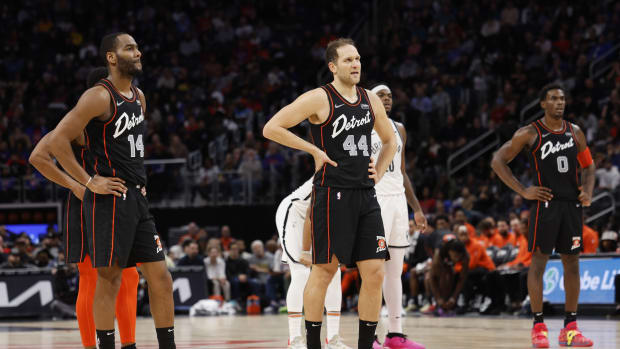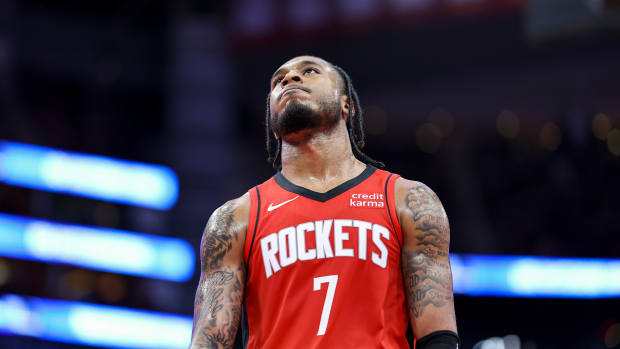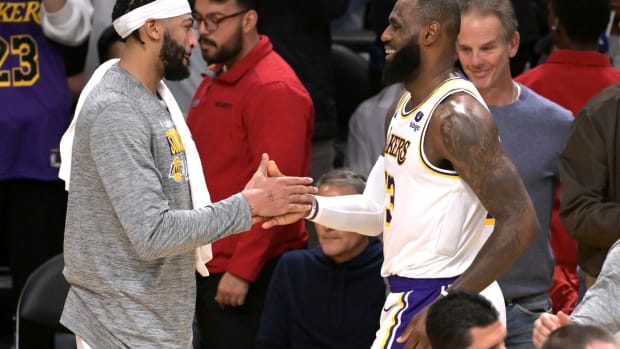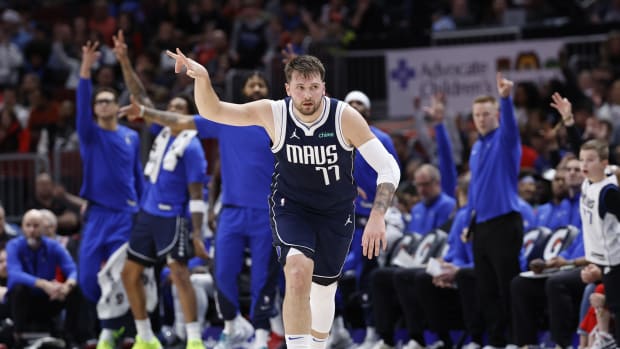Trade Grades: Wizards Trade Otto Porter for Financial Flexibility
The Bulls and Wizards sprung into deadline action on Wednesday night, reportedly agreeing to a deal that sends Otto Porter from Washington to Chicago in exchange for Bobby Portis and Jabari Parker, and a protected second-round pick in 2023. With neither team going anywhere in a hurry, the Bulls racing to the bottom and the Wizards reeling after John Wall’s Achilles tear, this is a trade seeking to better position both teams for the next couple seasons. Let’s break it down.
You have reached your limit of 4 premium articles
Register your email to get 1 more
Washington: B-
This is not the sort of move the Wizards hoped to have to make, but it’s a pragmatic one in the wake of Wall’s injury. Porter was always overpaid on his current contract, which runs through 2020-21 with a player option, but he was valuable to a healthy, full-bore Washington team as a versatile third wheel for Wall and Bradley Beal. With Wall set to miss an entire year and potentially more, there was added incentive for the Wizards to shed Porter’s contract. This deal saves them about $3.5 million in salary for this season (Porter is owed $26 million, Parker is making $20 million and Portis about $2.5 million as he heads into restricted free agency). Washington is now a move away from moving below the luxury tax line and avoiding the repeater tax, which is sensible given the circumstances and the fact they are likely to miss the playoffs. Expect the Wizards to remain active through Thursday’s deadline to shed more salary and get out of the tax entirely.
SHARP:The Tobias Harris Trade Gives the Sixers Some Jimmy Butler Insurance
Washington’s on-court return is also not for nothing: Portis has had some good moments with Chicago (apart from punching Nikola Mirotic) and becomes a player they can extend the qualifying offer, then try to re-sign this summer if they choose. He’s only 23 and moves into a better playing situation than in Chicago, where he had become superfluous to Lauri Markkanen and Wendell Carter in the Bulls’ long-term plans. Portis has certainly shown enough to be worth a trial run, and the future second-rounder definitely sweetens the return. Porter had been dealing with injuries on and off this season, and though he is still just 25 years old, the upside with his financial setup and the Wizards’ immediate trajectory was limited, and he becomes a casualty of the organization’s new reality.
Parker’s situation is a bit more complicated, but his deal is essentially an expiring one as the Wizards would be foolish to pick up his $20 million option for next season. Washington will get a look at him and be able to make a value judgment. He had grown disgruntled in Chicago—understandably so after the Bulls brought him home as a touted free agent signing, then proceeded to bury him in the rotation. The former No. 2 overall selection warrants another chance somewhere, and though it may not end up being Washington, the Wizards will have the added bonus of the cap space he creates this summer. New deals for Tomas Satoransky and Thomas Bryant may be on the docket. It’s an uncertain future for the Wizards, but at least it’s a more flexible one.
SI STAFF:Five Non-Anthony Davis Stars Who Should Demand a Trade
Chicago: C-
We’re all used to the Bulls being cheap at this point, so it’s actually a bit of a stunner to watch Chicago openly bring on Porter’s weighty salary. Sure, they have to pay somebody, and a healthy Porter bolsters their rotation, but at a price tag north of $27 million for next season and close to $28.5 million for 2020-21, the Bulls are essentially just committing to eating someone else’s bad money as they openly tank. Porter and Zach LaVine combine to form one of the NBA’s more uninspiring highly-paid duos, and until Chicago finds a way to orient their young talent toward winning games, it’s not going to look great having those two deals eating up half their cap space. Porter makes the Bulls better, and should return to being a 40% three-point shooter when fully healthy, but he is almost surely not the guy who gets Chicago over the hump, and to find that guy, they probably need to be losing games, not winning them. Without knocking Porter specifically, the ceiling for this move is rather limited.
WOO:Harris Gives Sixers Best East Lineup on Paper
That the Bulls preferred to deal Portis now suggests they were uninterested in bringing him back as a restricted free agent, which is fair, considering the type of money he might be able to command this summer, but he’s still 23 years old and isn’t exactly a zero-value player. Even though he would have been marginalized behind Markkanen and Carter, lumping him into a trade package to execute what is more or less a negative move may not have been the best way to cash out. Parker was unhappy anyway, but hanging onto him would have at least created cap space and given Chicago financial flexibility this summer.
In the Bulls’ defense, at least they are netting an above-average rotation player in Porter who is likely better than any player they might have seriously courted in free agency. He will help them and fits with their pieces—it’s just that Chicago should be more interested in draft assets and cheaper young talent based on where they’re at in the rebuild. The fact that they had to surrender a second-rounder in a deal that absolves the Wizards of financial dirty laundry feels wholly unnecessary. Maybe they rehabilitate Porter’s value and trade him again. They also could have just let Parker expire and looked to deal Portis separately. This feels like a deal the Bulls didn’t necessarily have to make, and one that doesn’t make a clear, positive impact on their future. The biggest issue is that none of it is especially surprising.


































